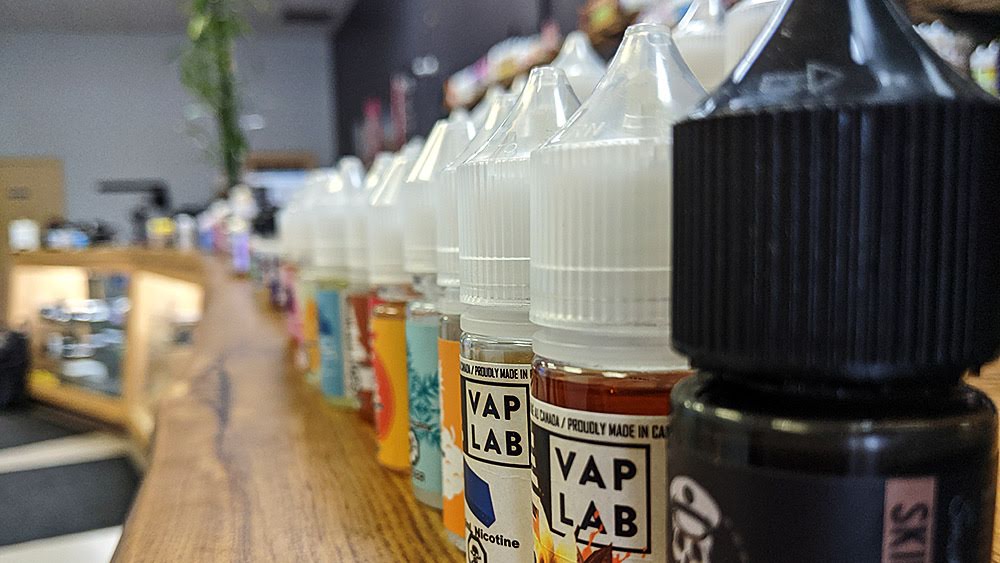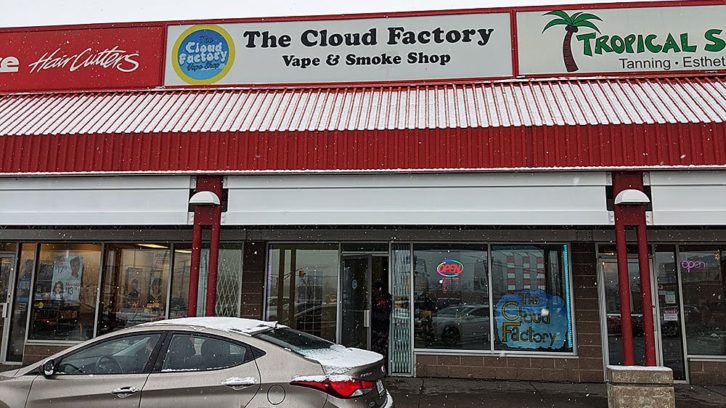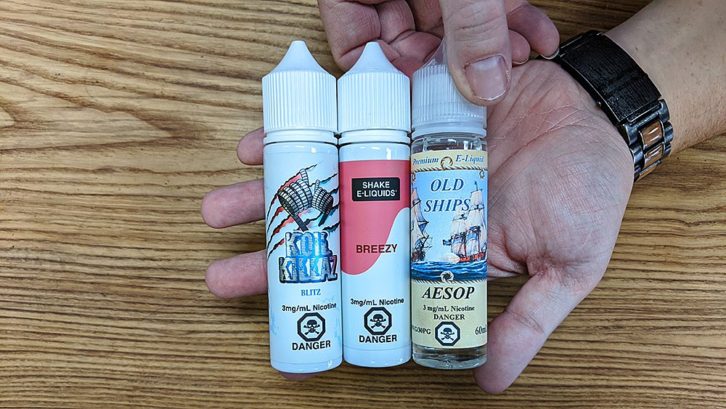Flavoured vape ban could put stores in jeopardy, owner says
Provincial ban on flavoured e-liquid aims to reduce youth vaping

caption
Vape stores carry hundreds of different flavours for customers to purchase. When the provincial legislation goes into effect, the only ones available will be tobacco flavoured, or non-flavoured.Vape store owners in Halifax Regional Municipality worry that an impending provincial ban of flavoured e-liquids for nicotine vaporizers will force them to close their businesses.
Bill McEachern owns and operates The Cloud Factory in Dartmouth. He is one of the 65 vape shop owners in the province who will be affected by the ban. He said his employees are hoping for the best, but planning for the worst.
“We’re just holding on to hope that it’s not set in stone. We’re trying to be more hopeful,” he said.
The provincial ban, announced on Dec. 5, would only allow storefronts to sell flavourless or tobacco flavoured e-liquid. The province implemented the ban as a first step to address youth vaping and committed to rolling out a public education campaign this year. Related stories
The Nova Scotia Department of Health and Wellness also announced that it will introduce legislation this year to further address vaping.
“Our biggest concern is that people will only have two options; flavourless and tobacco, and they don’t want to be reminded of tobacco every time they take a puff because they’re trying to get away from it,” McEachern said.
The U.K.-based Royal College of Physicians published a study in 2016 suggesting the health impacts of vaping is unlikely to exceed five per cent of the harm from smoking tobacco.
“We don’t know the long-term effects of vaping yet, but we know that it’s less harmful than inhaling combustible tobacco,” McEachern said.
McEachern said flavourless and tobacco-flavoured products only account for around three per cent of his sales, so the hit to his business would be considerable.
“Realistically, I don’t know what we’re going to do. My six full-time employees are aware that they may be out of a job at the end of this,” he said.

caption
The Cloud Factory in Dartmouth is one of the 65 vape stores in Nova Scotia that will be affected by the flavour ban. Owner Bill McEachern says they will likely have to close.McEachern’s main concern is the consumer potentially going back to something that is proven to be harmful.
“If it’s going to drive people back to smoking, it’s a death sentence for 67 per cent of those people,” he said.
The University of Waterloo published a study in 2017 on tobacco use in Canada, suggesting use in Nova Scotia is about 18.5 per cent among adults, which is 3.4 per cent higher than the national average of 15.1 per cent.
Sherwin Edwards is the founder of VapSelect, a Canadian e-liquid company, based in Hawkesbury, Ont. More recently, Edwards started Rights4Vapers, a consumer rights advocacy group focused on keeping the public informed and working toward evidence-based regulations on vaping.
Consumer awareness is something Edwards and his group are trying to improve moving forward.
“Our objective is to create awareness, engage the consumer, get the media to look at the other side of the coin and inform the general public on what the other side of the table represents,” said Edwards.
“We want to arrive at a happy medium which will continue to allow consumers access to the flavours that are helping them transition, while at the same time putting restraint on youth access.”
Edwards, who lives in Hawkesbury, Ont., said Nova Scotia’s imminent ban is too heavy-handed.
“The flavour ban is going to have a huge impact on brick and mortar retailers and will take away an important component for smokers to transition away from combustible tobacco” Edwards said.

caption
Dartmouth vape store owner Bill McEachern holds 3 of the countless e-liquid bottles. He said these are some of his best sellers – flavours he’ll no longer be legally allowed to sell after April 1, 2020Edwards would like to see Nova Scotia adopt some of the same practices as other provinces, rather than a blanket ban on flavours. Ontario no longer allows vaping advertisements in convenience stores, and British Columbia has increased the tax applied to vaporizers, accessories and e-liquids.
McEachern agreed.
“In other areas in North America, they’re following the proper model to what we believe would help. One part is removing high-nicotine products,” he said. “Studies are showing that that’s what kids are after, it’s the buzz that they’re getting from it.”
McEachern said he’d like to see e-cigarette products removed from “easy-access points” like gas stations and convenience stores. He said one of the main issues is the lack of strict identification protocol compared to licensed stores like his.
“It’s a mandatory process and it has been since day one,” he said.
Edwards said his store is also tough on potential underage customers.You can’t even walk into his store without ringing a buzzer, and ID is required for anyone who looks to be 25 years old or younger.
“I’m passionate about this subject matter and at the end of the day, enough is enough. The consumer needs to be aware,” Edwards said. “The government needs to be transparent and the media needs to share balanced information so that the consumer and the general public can make an informed decision on these products and the industry as a whole.”
Edwards said next week he’s participating in an iPolitics panel about vaping with other advocates. Rights4Vapers is also in the process of organizing a synchronized rally in Ottawa, Vancouver and Halifax that he hopes will take place sometime within the next month..
The provincial ban takes effect on April 1, 2020.
About the author
Benjamin Elliott
Ben Elliott is a reporter for the Signal at King's College in Halifax. He got his HBA in Communication Studies from the University of Waterloo...
